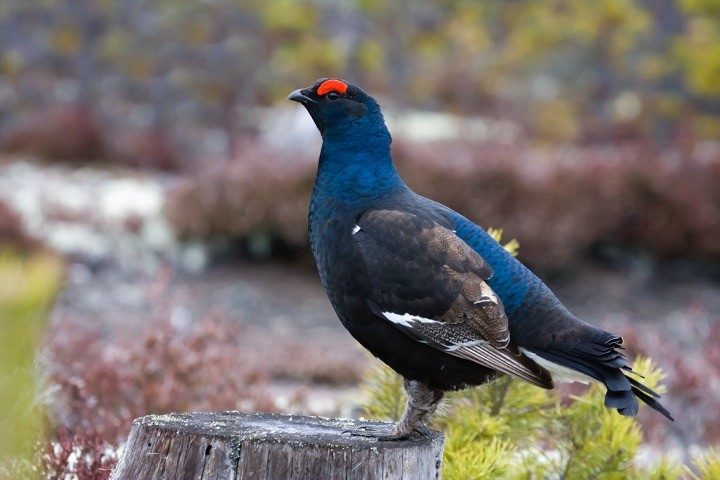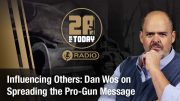
Are Mac ’n‘ Tosh too painfully posh? Is your hamster hoarding what should be redistributed? Does a polar bear have white privilege? While such questions, per se, aren’t being asked, they do epitomize a new phenomenon:
What Charles Darwin called “survival of the fittest” scholars and media are increasingly chalking up to “animal privilege” — and they’re couching the matter in “economic and sociological terms such as inequality and intergenerational wealth,” as The College Fix puts it.
Relating that science is now quite broken, the Fix continues: “‘Squirrel privilege is real.’ ‘Checking Privilege in the Animal Kingdom.’ ‘Even Hermit Crabs Have Wealth Inequality.’”
No, you haven’t landed at the Babylon Bee. Rather, “These headlines hail from Salon and The New York Times, respectively, and represent a growing trend among scholars and the media to tackle animal ‘inequality’ — and also argue humans can learn important lessons about income inequality and privilege from such studies,” the Fix explains.
A case in point is the globalist World Economic Forum (WEF). In a January article titled “Inequality is not confined to humans. Animals are divided by privilege, too” (which it unabashedly says “is part of the The Davos Agenda”), it presents the following bullet points:
- Inequality is a threat to our social fabric, but it’s not just a human problem.
- A new study shows the animal kingdom is riven by privilege and inequality.
- For some species, being on the wrong side of the divide is a matter of life and death.
Which “side of the divide” the “woke activist” species is on was not reported. Nor was it adequately explained why such inequality should be a “problem.”
The WEF continued:
Inequality is not confined to humans, a new study reveals. Mammals, fish, birds and even insects have been shown to benefit from inherited wealth and abilities.
Researchers have discovered the intergenerational transfer of wealth and resources affects many living creatures. Some have a better quality of life than other members of the same species — including access to food and shelter — just because of their parents’ status.
Published in the Journal of Behavioural Ecology in December 2021, the study found that some species of red squirrel, for example, pass their stores of nuts and pinecones on to their offspring, giving them a built-in fitness advantage in adult life and down the generations.
For some species of Grouse, success in mating can depend on paternal influence. When their fathers are nearby, young males gain prime position in courtship displays, giving them a much better chance of passing on their genes than those without a living father.
After providing examples from the marine and insect worlds as well, the “forum’s piece then segued into a human-focused section labeled ‘extreme inequality,’ noting that while ‘the top 1% of the wealthiest people own 38% of all wealth created since the mid-1990s, the poorest 50% of people have gained just 2% of it,’” the Fix relates.
“The New York Times in its December [2019] article ‘Even Hermit Crabs Have Wealth Inequality’ cited a study which found the distribution of shells in a single hermit crab population ‘was surprisingly similar to the distribution of wealth in human societies,’” the Fix further writes.
A critic might hope we’d draw the right lessons from these studies. For instance, the grouse example the WEF cited could perhaps underline the tragedy of fatherlessness. Instead, however, the predictable agenda was expressed in the aforementioned 2021 Salon piece, “Squirrel privilege is real: Intergenerational wealth drives animal inequality, study says.”
“Perhaps by understanding how privilege perpetuates among animals might help humans understand how to improve equity among our own species,” the left-wing site explained. “Or, at the least, dispel outdated myths about the cause of inequality.”
Part of what likely drives this, do note, is a quest for grants. In the 2014 essay “Blinding Me With Science: Fraud and Folly for Fame and Funding,” I cited an expert who said that if you wanted government money to study squirrels, you couldn’t frame it in just that way. Rather, you’d have to say you want “to investigate the nut-gathering behavior of squirrels with special reference to the effects of global warming,” he said — and then you get the money.
The only difference is that now, eight years later, it may be beneficial to pander to the latest woke obsession: “privilege” propaganda.
The deeper issue is what enables all this: Equality Dogma. Being a basic supposition today, it goes unquestioned — even by conservatives, who, tragically, ever conserve leftists’ past mistakes.
But should it be conserved, or canceled? Well, consider the following example:
There are two tennis centers training children. After a certain period of time at the first, all the kids are advanced beginners. After the same period at the second, some are advanced beginners; two other large groups constitute, respectively, low intermediates and intermediates; there’s a small group of advanced players; and a handful are approaching tournament caliber. At which center is there more equality?
Okay, now, at which are the children doing far better on average?
The lesson: Equality tells you nothing about quality. It’s completely irrelevant.
This is apparent in everything in life. For example, while there’s incessant WEF-like talk about growing “wealth inequality” worldwide, we don’t hear much about what even left-wing ThinkProgress acknowledged in 2013: that the world’s overall standard of living was the highest ever in man’s history.
The moral of this story is that it doesn’t matter what the other squirrels are doing as long as everyone has his nest and nut — and the equality nuts threatening this are ousted from power.


